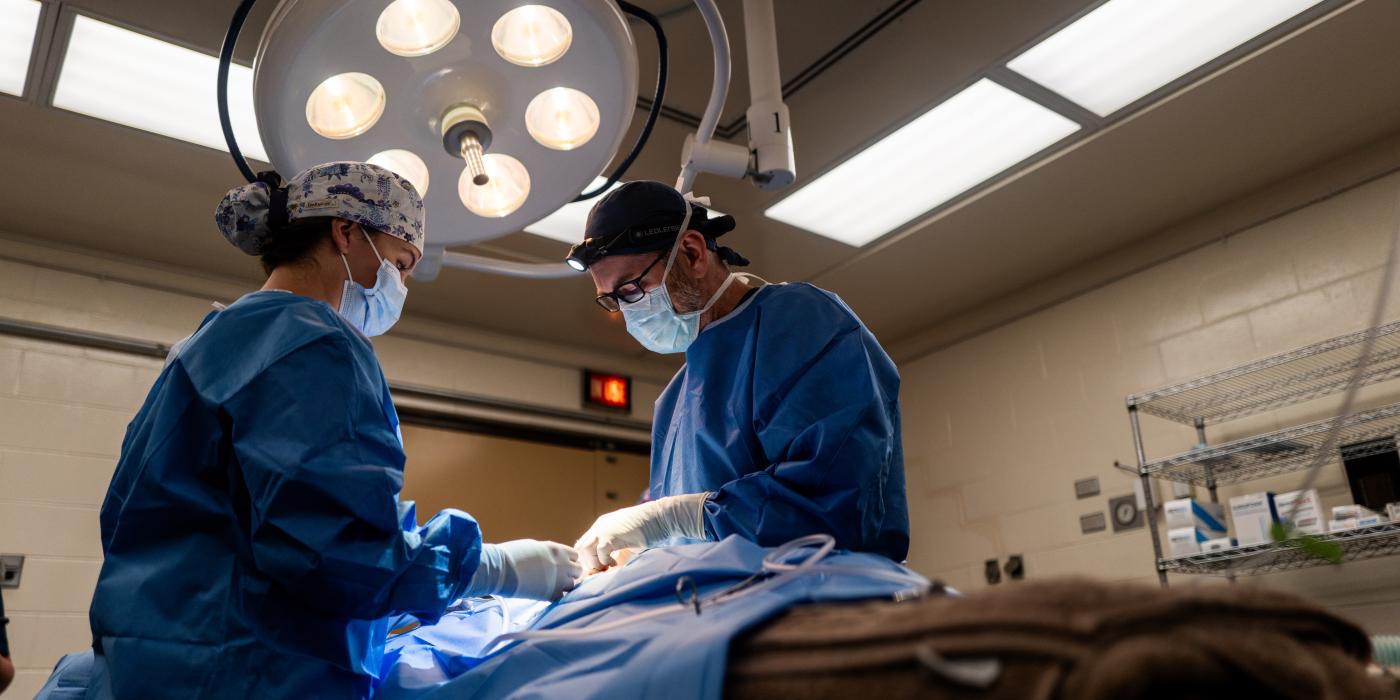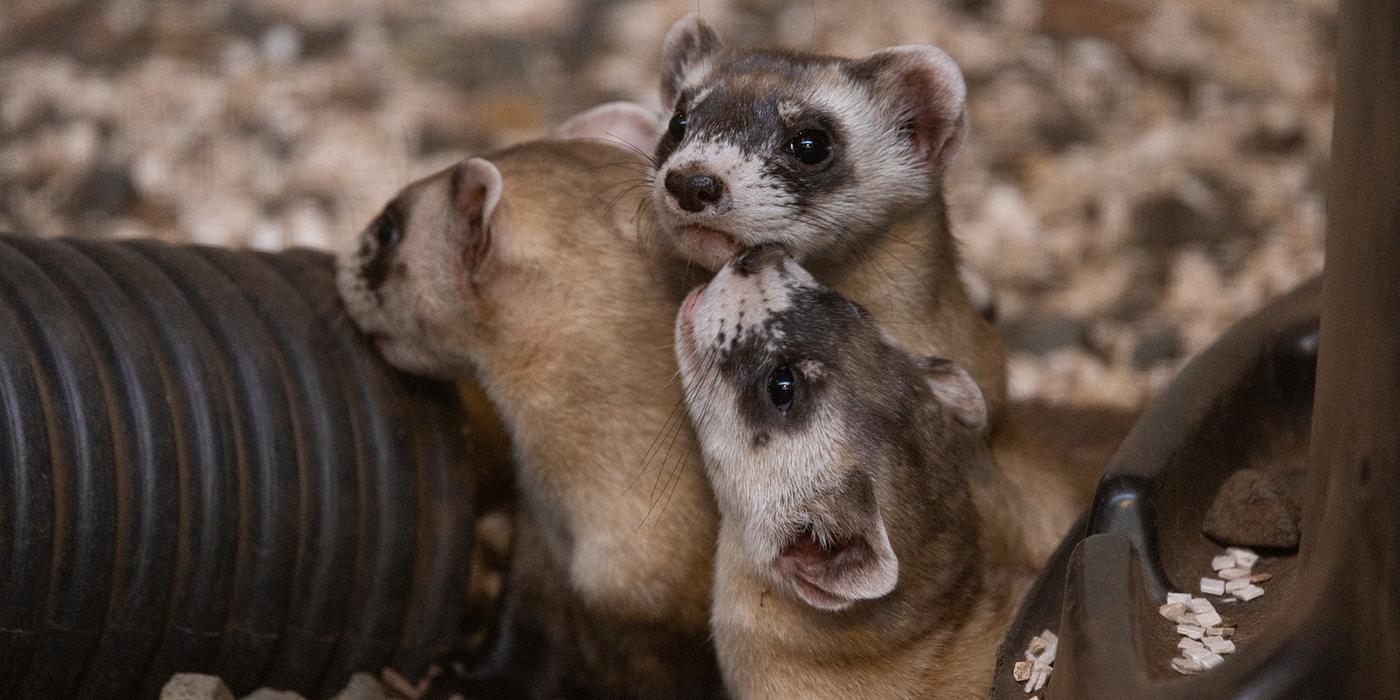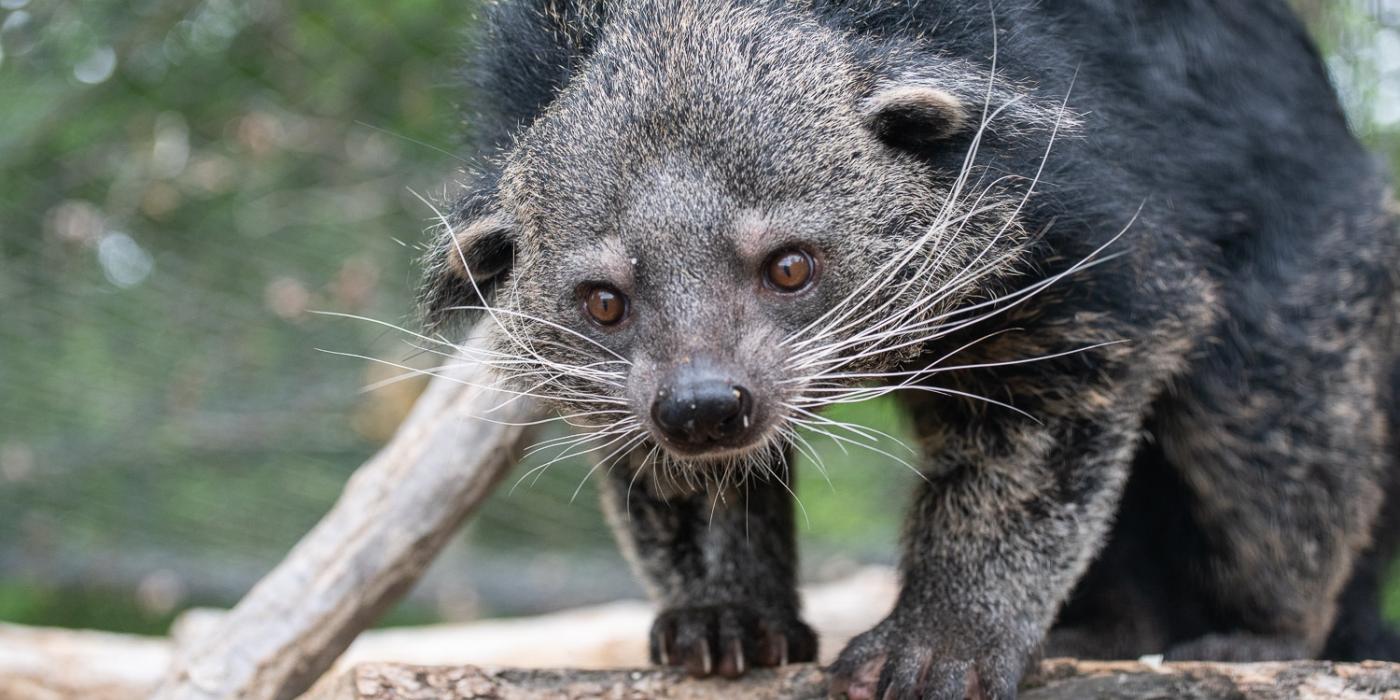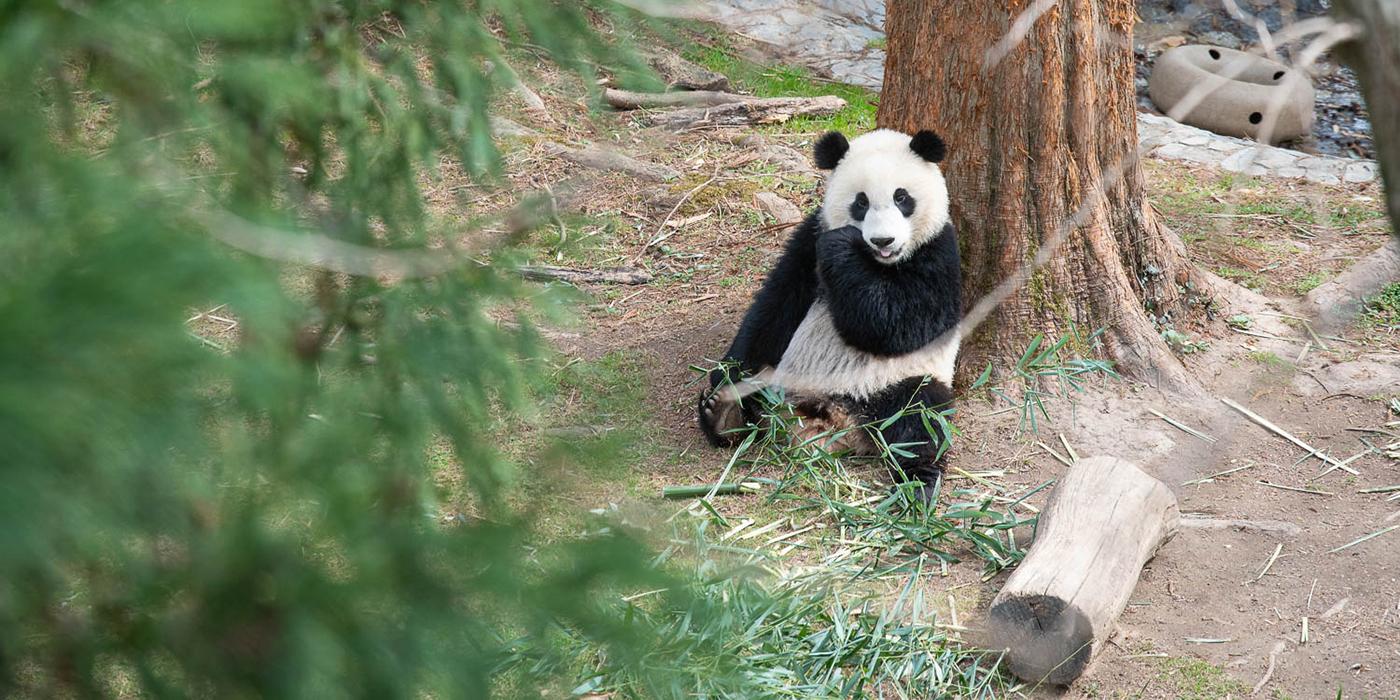Veterinary Care
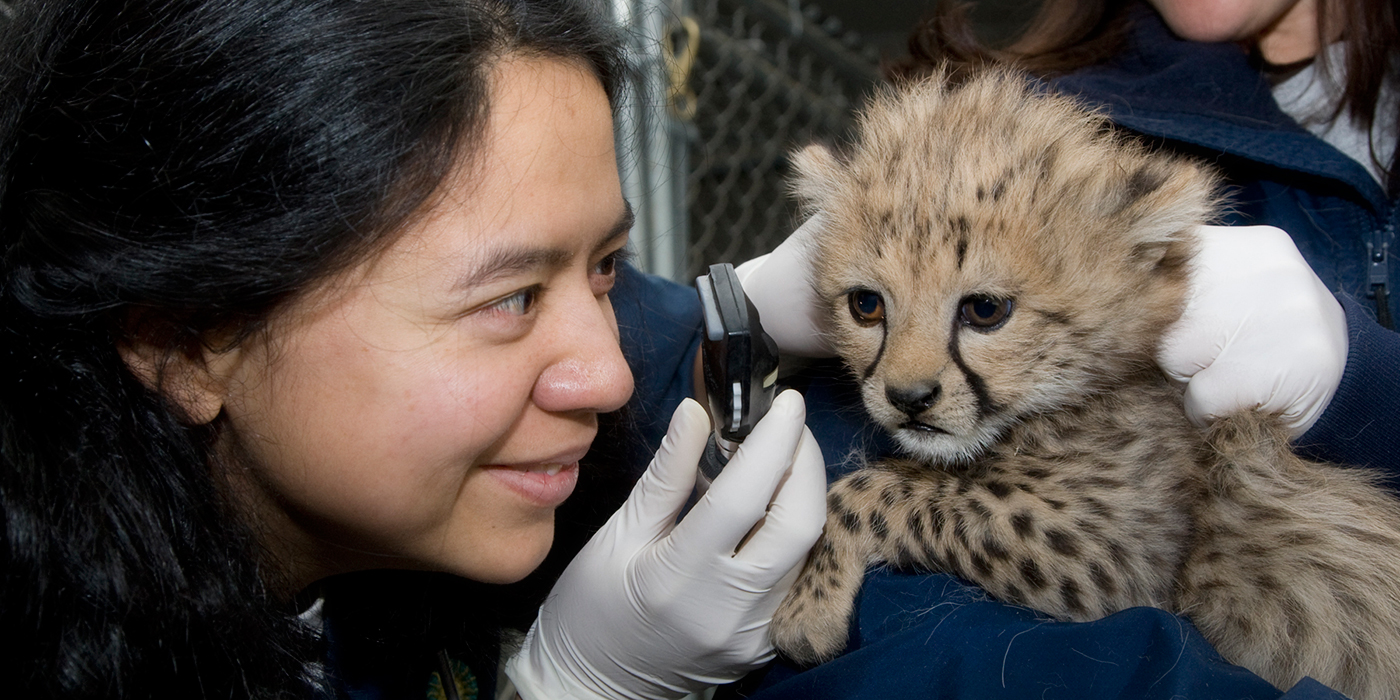
The Department of Wildlife Health Sciences saves species by providing the best clinical veterinary care to the animals in our collection, researching novel diagnostic and therapeutic approaches for wildlife species, providing leadership in conservation medicine, and training future zoo and wildlife veterinarians to continue this work to promote wild animal health.
The top priority is maintaining the health of the animals in our collection. Wildlife Health Sciences comprises veterinary clinicians, pathologists, technicians and animal keepers, who work to maintain a preventative health program, through examinations, vaccinations, parasite screenings, dewormings and quarantine of new animals coming into the collection. The veterinary staff also responds to treat any medical condition that arises in the animals, and additional specialists, including cardiologists, surgeons, dentists and ophthalmologists, are consulted as needed to obtain expertise in treating more specialized problems.
As specialists in zoological medicine, the WHS staff also leads and participates in clinical and conservation research by adopting novel diagnostics and treatments for zoological species through clinical trials and primary research. WHS staff also works with Smithsonian and external researchers to investigate how to best save and protect species in situ and ex situ.
WHS staff are committed to saving species by sharing knowledge and also learning from others in the zoological field. This includes publishing research in peer-reviewed journals and leading and attending professional conferences to share and discuss work. WHS staff also works closely with nutritionists, reproductive specialists, and animal managers while developing veterinary protocols and research.
An important aspect of our mission to save species is educating future zoo and wildlife veterinarians. WHS staff perform outreach to the public through events and conferences. The Zoo has a training program for 4th year veterinary students and a 3-year residency program through the American College of Zoological Medicine to train veterinarians to become specialists in zoological medicine. Veterinarians trained at the Zoo have gone on to become wildlife specialists for zoos and conservation projects around the world, continuing the trajectory of saving species from extinction.
Featured Stories
A Life-Preserving Cheetah Surgery
With the help of 3D modeling technology, a team of veterinary experts successfully carried out a rare spinal surgery on a female cheetah cub.
How to Do a Ferret Health Exam
The ferret kits at our breeding facility in Front Royal, Va., just passed their 90-day health check with flying colors.
How to Train a Binturong
How do you help a binturong with arthritis? Learn how our animal care team trained Hank to voluntarily participate in his own healthcare.
Giant Panda Veterinary Care
How do you train a panda to voluntarily participate in blood draws and other medical exams? By building the bears’ trust and rewarding their participation with treats!

